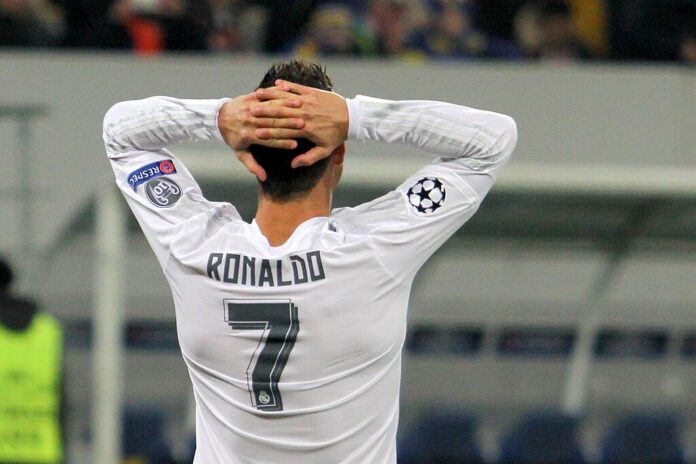Cristiano Ronaldo and Georgina Rodriguez’s children showcase their growing proficiency in Arabic, delighting fans and social media users alike
In a heartwarming display of cultural integration, a viral video featuring Cristiano Ronaldo‘s children speaking Arabic has captured the attention of social media users. The clip, which showcases the family’s adaptation to life in Saudi Arabia, features Ronaldo’s son Mateo greeting passersby with the traditional Arabic phrase, “Peace be upon you.” His sister Alana quickly follows, trying to correct her pronunciation before confidently counting in Arabic, showcasing their budding language skills.
This isn’t the first time the children have made headlines for their Arabic abilities. Last year, Ronaldo and Rodriguez’s daughters, Alana and Bella, became internet sensations when Rodriguez shared Instagram Stories of them singing in Arabic. In one charming clip, the girls sang, “My family, my family, I love my mom, I love my brother,” with Rodriguez captioning it in Spanish, highlighting their progress. Alana, only five years old, also recited the days of the week in Arabic in another story, which Rodriguez proudly shared with her followers.
Embed from Getty ImagesThe family’s move to Saudi Arabia in January 2023 followed Ronaldo’s signing with Al-Nassr, a team in the Saudi Pro League. Since relocating, Ronaldo has expressed his happiness with the transition, stating that the adjustment period was smooth for him and his family. In a recent interview with former footballer Rio Ferdinand, he remarked, “To be honest, I am really happy to be there. For me, the adaptation was easy, and I really love it to be there.”
Ronaldo’s positive sentiments reflect a broader narrative of how international figures can bridge cultural divides, especially in a country like Saudi Arabia, which is eager to showcase its openness to the world. As the family continues to embrace their new surroundings, their children’s enthusiasm for learning Arabic not only highlights their adaptability but also symbolizes a growing connection between cultures.
Analysis:
Political
Cristiano Ronaldo’s presence in Saudi Arabia serves as more than just a sports story; it embodies the kingdom’s efforts to project a more modern and open image to the world. By showcasing his family’s integration into Saudi life, Ronaldo helps promote a narrative that counters stereotypes about the region. His positive experiences in the country can influence public perception, making it easier for other high-profile figures to consider similar moves. The visibility of a global icon in Saudi Arabia aligns with the nation’s Vision 2030 initiative, which seeks to diversify the economy and improve its global standing.
Social:
The viral nature of the video featuring Ronaldo’s children speaking Arabic speaks volumes about social media’s role in shaping cultural narratives. It reflects a growing interest in multiculturalism and inclusivity, especially within the context of celebrity families. As people engage with content that features diverse backgrounds, it fosters a sense of global citizenship. The enthusiastic reception of the children’s language skills suggests that audiences appreciate and celebrate cultural learning, especially among high-profile families, which can lead to increased curiosity and acceptance of different cultures.
Racial:
Ronaldo’s family navigating their life in Saudi Arabia brings to light issues of race and cultural identity. As a prominent public figure, Ronaldo’s acceptance and adaptation to a new culture serve as a counter-narrative to often negative portrayals of race relations in the media. His children’s ability to learn and speak Arabic reinforces the idea that cultural exchange can transcend racial boundaries. This representation matters in a world that frequently grapples with issues of race and belonging, showcasing how love and family can bridge divides.
Gender:
The involvement of Ronaldo’s daughters in language acquisition highlights gender dynamics in educational and cultural contexts. Rodriguez’s active role in sharing her daughters’ achievements on social media underscores the importance of women in fostering cultural education within families. By promoting their language skills, she not only showcases her daughters’ talents but also empowers young girls to embrace learning and cultural expression. This representation is essential in encouraging other families to value language acquisition and cultural diversity.
Economic:
Ronaldo’s move to Saudi Arabia has significant economic implications, not just for the football industry but also for the broader perception of the country as a desirable location for expatriates. His family’s visible integration into Saudi culture could encourage other international families to consider relocating, positively affecting the economy. As language skills become a valuable asset in a globalized world, the focus on learning Arabic among children indicates an investment in future opportunities and cultural fluency, which can enhance economic interactions across borders.
